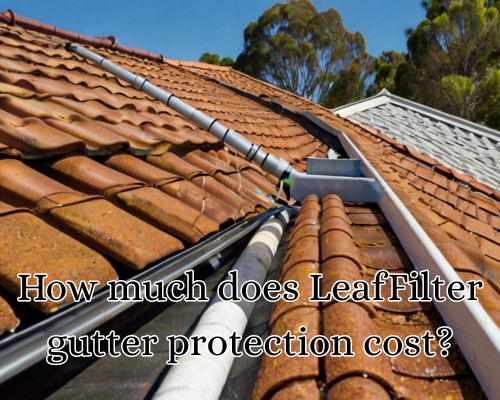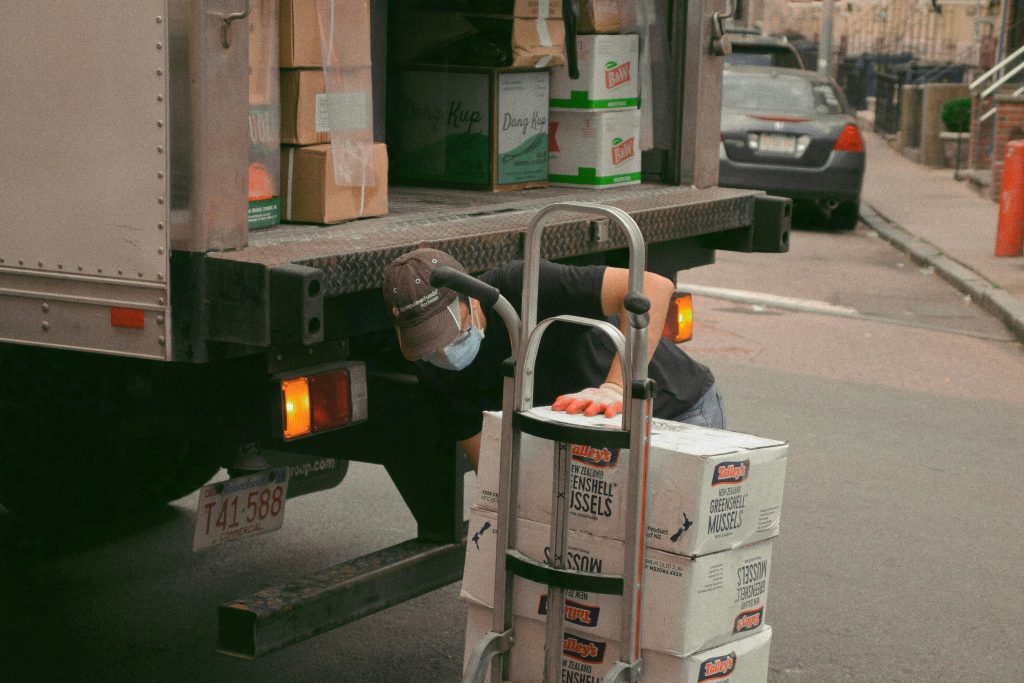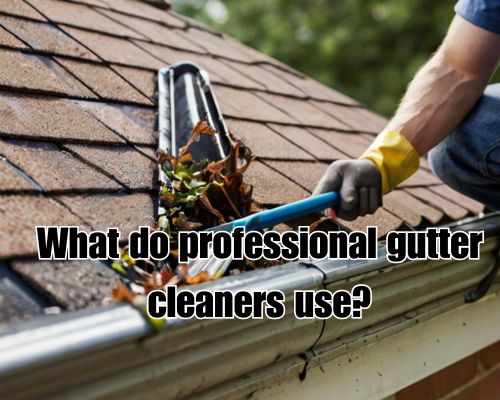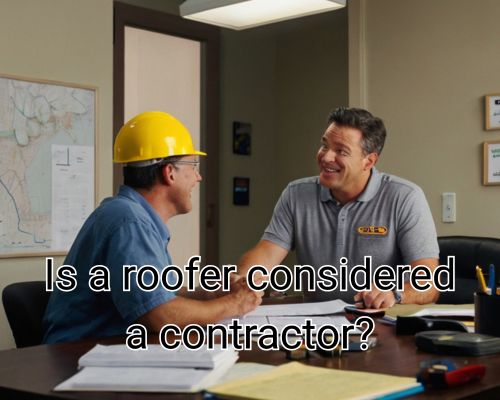Is Gutter Damage Covered by Homeowners Insurance? A West Palm Beach, Florida Guide
In West Palm Beach, Florida, where tropical storms and heavy rain are part of the seasonal rhythm, homeowners are frequently left asking one critical question: Is gutter damage covered by homeowners insurance? This concern is especially relevant for coastal residents where salt-laden winds and hurricane threats amplify wear and tear on roofing and drainage systems.
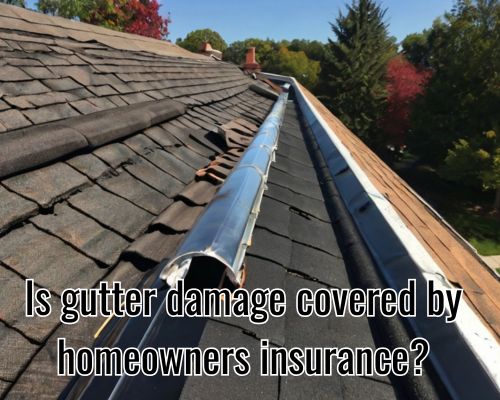
With Gutters Of West Palm Beach, let’s explore this topic in-depth—examining insurance policies, damage scenarios, and actionable insights that West Palm Beach homeowners need to know. Whether you’re a new buyer, a long-time resident, or managing property investments in Palm Beach County, this guide will clarify when gutter repair or replacement may be an out-of-pocket expense—or covered by your insurance provider.
🌧️ Understanding the Role of Gutters in West Palm Beach Homes
Gutters are often underrated until they fail. In West Palm Beach, where average annual rainfall exceeds 62 inches, gutters are essential for diverting water away from your home’s foundation. Without functional gutters, properties in neighborhoods like Flamingo Park, SoSo, or El Cid risk structural water damage, soil erosion, and even mold infestation.
That’s why it’s important to not only maintain your guttering system but also understand your homeowners insurance coverage in case things go wrong.
🏚️ Common Causes of Gutter Damage
Before diving into policy specifics, let’s break down what typically causes gutter damage in Florida:
- Hurricane-force winds or tropical storms
- Falling branches or debris during storms
- Clogging due to palm fronds, leaves, and nesting animals
- Saltwater corrosion near coastal areas like Palm Beach Shores
- Improper installation or aging systems in older homes
Many of these are frequent occurrences in Palm Beach County, and your insurance company likely knows this all too well.
📝 Is Gutter Damage Covered by Homeowners Insurance?
The short answer is: it depends. Most standard homeowners insurance policies in Florida provide coverage for sudden, accidental damage, including weather-related incidents. However, they generally do not cover maintenance-related issues or gradual deterioration.
✅ When Gutter Damage Is Typically Covered
- Storm damage: If a hurricane, tropical storm, or heavy winds tear your gutters from the roofline, you may be eligible for reimbursement under your windstorm or named peril policy.
- Falling objects: Damage from a tree limb crashing onto your gutter system during a thunderstorm may also be covered.
- Weight of ice or water: Though not as common in Florida, excessive pooling water from clogged downspouts could lead to structural stress and be covered—if it’s not deemed a result of negligence.
❌ When Gutter Damage Is Not Covered
- Neglect or lack of maintenance: If your gutters were clogged for months and eventually pulled away from the fascia due to weight, insurers will likely deny the claim.
- Rust or corrosion: Over time, metal gutters can rust, particularly in salt-air environments like Lake Worth Beach. This is considered normal wear and tear.
- Pest damage: Rats, squirrels, or birds nesting in your gutters? Sorry—most policies exclude vermin damage unless it’s secondary to a covered peril.
🔍 Florida Insurance Specifics: The Citizens Property Insurance Factor
In West Palm Beach, some homeowners rely on Citizens Property Insurance Corporation, Florida’s insurer of last resort. If your property is insured through them, it’s crucial to understand their stricter underwriting rules. Citizens tends to deny claims that could be construed as maintenance-related, so documenting all storm-related events is crucial.
For private insurers, you should consult the “dwelling coverage” (Coverage A) and “other structures” (Coverage B) sections of your policy to understand how your gutter system is classified and protected.
📷 How to File a Claim for Gutter Damage
If you suspect storm-related damage to your gutters, here’s how to improve your chances of a successful insurance claim:
- Document immediately: Take time-stamped photos or videos of the damage, especially after a storm.
- Keep weather reports: Save local news or National Weather Service alerts that show storm conditions at the time of damage.
- Hire a licensed inspector: Roofers or gutter specialists in West Palm Beach—like those based in Northwood or Palm Beach Gardens—can provide professional damage assessments.
- Report quickly: Florida law typically gives you up to one year to file a claim after discovering damage, but sooner is better.
- Avoid temporary fixes without documentation: Make only emergency repairs and retain all receipts for reimbursement.
🔧 Repair vs. Replacement: What’s More Likely Covered?
Repair costs for gutter damage in West Palm Beach usually range between $200 and $600, depending on material and labor. However, if your insurance policy does kick in, it will typically cover:
- Labor and materials
- Roofline reinforcements
- Related water damage (if caused by the event)
Complete gutter replacement may be covered only if the system is considered “irreparable” and was damaged by a covered peril. Custom-fit gutters, such as seamless aluminum or copper ones found in luxury estates in The South End, will have higher replacement costs and may not be fully reimbursed.
🧾 Proactive Tips for Insurance Peace of Mind
To avoid nasty surprises during claim time, here’s how West Palm Beach residents can stay ahead:
- Schedule biannual inspections (especially before and after hurricane season)
- Install gutter guards to prevent clogging from leaves and sand
- Keep a maintenance log and save invoices from local gutter services
- Review your insurance policy annually, especially after property value reassessments
📍 Local Resources and Assistance
- Palm Beach County Property Appraiser – to assess property value and improvement impact
- Florida Department of Financial Services – for understanding insurance claims rights
- Licensed roofing and gutter contractors in West Palm Beach – many offer free estimates and work directly with insurers
Recommended local providers include:
- Gutters Of West Palm Beach
- Sunshine Roofing & Drainage
- Atlantic Seamless Gutters Florida
🏁 Conclusion: Be Prepared, Not Surprised
So, is gutter damage covered by homeowners insurance? In West Palm Beach, Florida, the answer hinges on whether the damage was sudden and unforeseen—or a result of preventable neglect. With severe weather being a seasonal norm, the smart homeowner stays informed, proactive, and insured accordingly.
The next time a thunderstorm rolls in over the Intracoastal Waterway or gusts sweep down from Okeechobee Boulevard, make sure your gutters—and your insurance policy—are ready for what’s coming.
Takeaway: Don’t wait for the next downpour. Review your coverage now, schedule that inspection, and keep your gutters—and budget—storm-proof.
